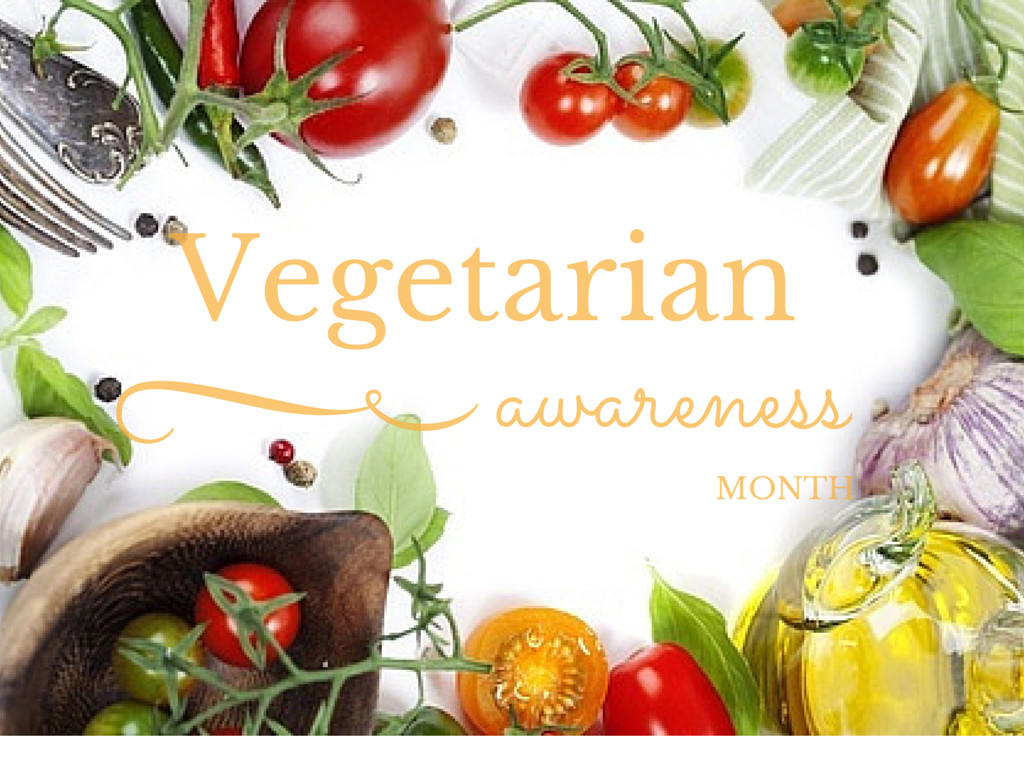Last week kicked off the beginning of National Vegetarian Awareness Month. In honor of vegetarianism, I think we should talk about what it is and what all of the fuss is about. I often get many questions about what vegetarians can and cannot eat. “But do they eat fish? What about eggs? Can they eat animal crackers? Where do they get protein?” The questions are endless, but understandably so.
Types of Vegetarianism
Vegetarianism encompasses all types of diets which aim to limit the consumption of meat and promote a diet rich in plant based foods. It really is a broad term that defines many diets. Here are some of the various diets included in vegetarianism:
Lacto-Ovo
Derived from the Latin terms for “Milk and Eggs”, it’s exactly how it sounds. Lacto-Ovo vegetarians consume diets rich in fruits and vegetables, while still allowing for dairy and eggs in their diets. These are the people that are able to eat a slice of pizza or an omelet. They do not consume any meat or fish.
Lacto
Lacto is the Latin term for “Milk”. These vegetarians consume dairy products but no eggs. Their diets will be filled with plenty of fruits and vegetables, and still allow for dairy products like cheese and milk. They do not consume any meat, fish or eggs.
Pesci-tarian
Pesci is Latin for fish, meaning these vegetarians consume diets rich in fruits and vegetables while also allowing for the consumption of fish. They still avoid all meat in the form of chicken, beef, pork, etc.
Vegan
Vegan is the most limiting type of vegetarian. Vegans will consume strictly plant based diets with no meat, dairy, eggs, or fish. Some vegans also omit any type of animal product from their lifestyle, including honey (from bees), and leather.
Benefits of Vegetarianism
For the average meat eater – it’s easy to look at the definitions of vegetarianism and be intimidated by how restrictive they are. The truth is while any diet change can be hard, the research behind vegetarianism is strong. Vegetarians live longer (an average of 13 years longer!) than any other dietary demographic in the world. Diets high in vegetables and fruits have been proven again and again to reduce the risk of cancer, heart disease, and diabetes. But the data isn’t just circumstantial. Because vegetarian diets include tons of fruits and vegetables, they take in higher amounts of antioxidants – cancer fighting components found only in plants. Vegetarian diets are also far lower in cholesterol, meaning that heart disease is almost non-existent within the vegetarian demographic.
Vegetarians also tend to weigh less and be more active than meat eaters. According to research done by Dean Ornish, MD, when overweight meat eaters switch to a plant based diet, they lose an average of 24 pounds in the first year. And five years later? That weight loss is sustained.
Not only does vegetarianism do great things for our bodies, but it helps the planet too. Meat production has become one of the most demanding industries in terms of using resources. According to research from Stanford, reducing meat based diets has the potential to save the environment.
How to participate
Vegetarian Awareness month is in place to remind and educate everyone about the benefits of a healthy and whole diet. Even meat eaters are able to participate in the vegetable revolution. Thousands of people are taking the pledge to go meatless for the month of October with the ability to win prizes for their efforts.
Others are happily participating in Meatless Mondays. You don’t have to jump right in to start seeing some of the benefits of going veg. By limiting meat and consuming 5 cups of vegetables each day, you are improving your health astronomically.
If switching to vegetarianism is something you are interested in pursuing, it is important to work with a dietitian who can help guide you in the right direction. You have to do your research to make sure that you make the switch in the healthiest way possible.


